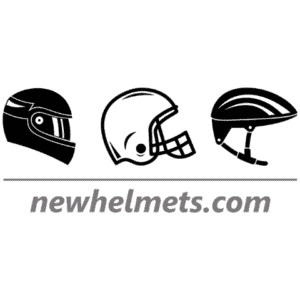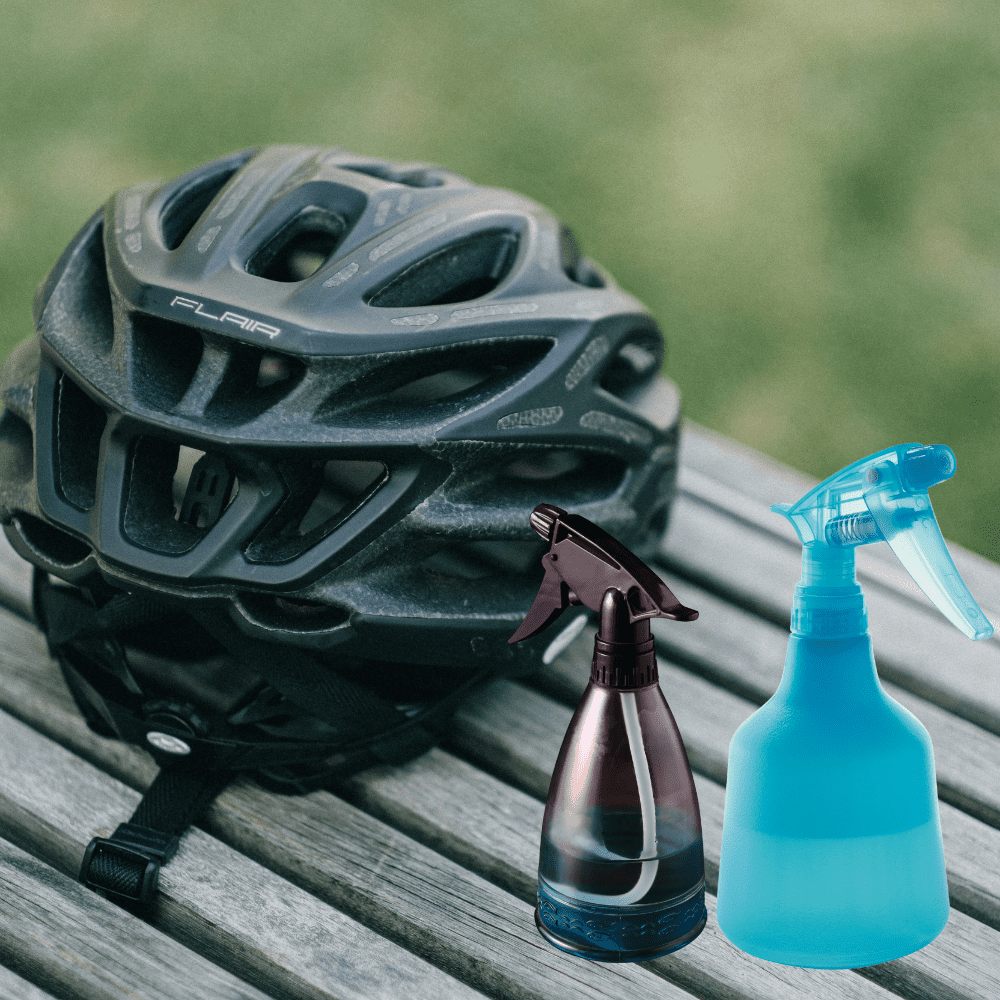The best way to clean a helmet after cycling in mud is to first remove any loose dirt or debris with a soft-bristled brush or a damp cloth. Next, mix a mild detergent with warm water, and use a soft cloth or sponge to gently wipe it down, being careful not to saturate the padding or straps. Rinse the helmet thoroughly with clean water and dry it with a clean cloth. Avoid harsh chemicals or solvents, which can damage the helmet’s materials. And leave the helmet to dry completely before using it again.
How do cleaning chemicals damage a helmet?
Some cleaning chemicals can damage a helmet, so it’s essential to use mild detergents and avoid harsh chemicals or solvents. These can weaken or dissolve the materials used in the helmet, such as the plastic and foam padding, which can affect the helmet’s integrity and ability to protect your head in the unfortunate event of an impact. Also, harsh chemicals can cause discoloration or damage the helmet’s finish. It’s always recommended to read the label of cleaning products before use and check if they are safe for use on helmets or other protective gear.
What are the best products used to clean a helmet?
Some of the best products for cleaning a helmet include mild detergents like mild dish soap or laundry detergent. However, there are specialized helmet-cleaning products available. It is recommended to avoid using harsh chemicals or abrasives, such as bleach or scouring pads.
A popular cleaning solution is to mix warm water with any mild detergent found at home to create a solution.
Another option is to use a specialized helmet cleaning solution like Gear Aid Revivex Pro Cleaner, which is designed to clean and deodorize helmets and other outdoor gear. There are also cleaning wipes that can be used to clean the helmet, like Simple Green All-Purpose Wipes that can be used to clean the helmet surface.
It is important to remember that it is always recommended to read the label of cleaning products before use and check if they are safe for use on helmets or other protective gear.
One of the most common issues when maintaining helmets is keeping the vents and air channels clean and unobstructed to ensure proper ventilation. If you don’t, your helmet can quickly clog up and become smelly. Sweat, dirt, and rain are soaked up by the soft materials usually used in the lining, straps, and buckles.
So how to stop a helmet from smelling?
There are several ways to prevent or stop a helmet from smelling:
- Clean the helmet regularly: Cleaning your helmet after every use can help prevent bacteria and odors from building up. Use a mild detergent and warm water to wash the helmet, and dry it thoroughly before storing it.
- Use a deodorizer: Special helmet deodorizers can be used to eliminate odors and freshen up the helmet. Some of these come as sprays, while others are small packets that can be placed inside the helmet.
- Allow the helmet to air out: Make sure the helmet has a chance to air out between uses. Store it where it can receive good ventilation, and always avoid storing it in a humid or damp location.
- Avoid leaving the helmet in direct sunlight: Direct sunlight can cause the helmet to become hot and humid, creating an environment for bacteria to grow and multiply.
- If there is no other option, you can replace the padding if it smells too bad. You may need to replace the padding if it is the source of the odor and just won’t come clean.
- Avoid leaving the helmet in a closed bag: If you transport it in a bag, ensure it is well-ventilated and avoid leaving it inside a sealed bag for long periods.
- Clean the helmet with disinfectant or sanitizing wipes: It is essential to use disinfectant or sanitizing wipes that are safe on helmets and other protective gear.
It is important to take care of the helmet, keeping it clean and well-ventilated. However, it may be best to replace it if it shows signs of wear or damage.


